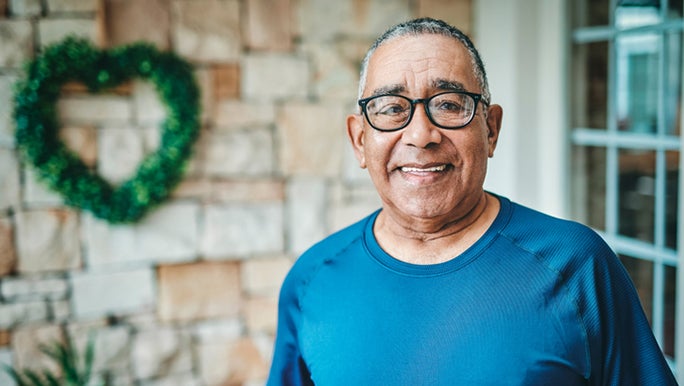Key Points
- Compared to the rest of the world, Aussie men are doing well health-wise
- For the first time in nearly 2 decades, Aussie men’s health expectancy has decreased
- However, Aussie men are not eating well, drinking too much and are unlikely to seek medical help overall
- The positive statistics may be due to our healthcare system, rather than lifestyle
- Consider introducing healthy food plans for men who may not be eating as well as they could be
- See a healthcare professional if you have any men’s health questions
The data on men’s health is in, and the good news is that Aussie men are living longer than ever before. They’re also living longer than men in many other parts of the world. But there’s still a lot that can be done to improve the health of Aussie men in a number of areas.
We asked GP Dr Jill Gamberg to comment on how healthy Australian men are. (Given the facts provided above, her answer may surprise you.)
“Not very,” she says. “In general, Australians have many unhealthy lifestyle behaviours and men are worse off than women.
“But, if we compare Australia to the rest of the world, we’re doing quite well.”
Why the discrepancy? Let’s take a closer look at some men’s health facts.
For the first time since the mid-1990s, life expectancy in Australia has decreased by 0.1 years for males from 2019–2021. This is likely due to an increase in deaths in 2022 from COVID-19 and the remainder from other causes.
The good news is…
Just over 50 years ago, the average Aussie male could expect to live until 67.6 years old. But what’s the average lifespan of an Australian male now? Thankfully, it’s significantly higher.
At 81.3 years, men’s life expectancy in Australia is:
- on the up: Australia was one of the few countries that recorded increases in life expectancy during the pandemic
- looking promising: with males expected to spend 88% of their lives in full health
It has also improved at a faster rate than females, meaning the gap between male and female lifespans is narrowing.
With three in five Aussie men rating their health as ‘excellent’ or ‘very good,’ a long-term downward trend in tobacco smoking and half of men meeting exercise guidelines, there’s certainly a lot to celebrate when it comes to men’s health and fitness.

Less than 1 in 30 men are meeting their fruit and vegetable targets
The not-so-good news is…
Unfortunately, only 3% of men met their vegetable intake in 2022, more than 35% of males exceeded the Australian alcohol drinking guidelines and around 8.5% of males drink a sugar sweetened beverage daily, double of what women drink.
In addition, 63% of men have a waist circumference associated with increased metabolic risk, which can lead to a range of common men’s health issues.
Men are also much more likely than women to be injured due to higher levels of risk-taking behaviour. They’re also less likely to get health checks and therefore less likely to receive early detection of disease.

Australian men are living longer than ever before
If the state of men’s health is bad, why are we faring so well internationally?
When we compare men’s health in Australia to the rest of the world, we’re doing quite well.
“However, it’s more complex than just stating the numbers,” Dr Jill says.
Dr Jill explains that there are multifactorial reasons for this discrepancy, but it’s mostly down to the healthcare system in Australia.
“We have an excellent healthcare system,” she says. “So even if you don’t take good care of your body, or you end up having a heart attack or a stroke, as long as you get to the hospital in time, you may still have a good outcome.”
Where is men’s health headed?
Internationally, the number of people living past 100 years of age (AKA centenarians) is increasing. Incredibly, by the year 2050, there will be eight times as many centenarians as today. And it’s predicted that by 2100 there will be a 99% probability of a person living up to 124 years.
In saying that, the majority of Aussie men (around 60%) don’t engage in regular health check-ups, and this represents a missed opportunity for preventative healthcare discussions.
“Lower consultation rates may translate into lost opportunities to detect and intervene with problems early,” Dr Jill says.
“Add in the rising cost of doctor visits, limited access in rural and remote areas as well as cultural barriers to seeking help, and there are some changes needed.”
What about happiness?
Men’s health and wellbeing aren’t just dependent on physical aspects: other factors come into play, like how happy we are and how healthy our relationships are. These may affect how long we’ll live.
When it comes to Australian men’s mental health, it’s important to remember that exposure to stress can influence wellbeing, as can loneliness and general dissatisfaction with life.
What can men do to increase their happiness?
Dr Jill recommends:
- having paid work where possible
- caring for others
- engaging in volunteer work
- maintaining active memberships in sports or community organisations
- keeping a companion animal
- building and maintaining healthy relationships
It’s important that men know where and how to seek help when it’s needed. Your GP is a good place to start and you can also call Beyond Blue for additional support.

Doctors recommend men get regular health checks in order to screen for illness and implement preventative measures early
When should you get a men’s health check?
In general, men use healthcare services less than women. They are also more likely to delay seeking help. This may put them at greater risk of developing serious health problems.
Dr Jill recommends that men get regular health checks to keep on top of things. “If there are no screening opportunities, there are no prevention opportunities,” she says.
Make sure to reach out to your healthcare professional with any men’s health questions you may have.
Related:
Jill Gamberg is a General Practitioner and Lifestyle Medicine Physician, with a Masters in Coaching Psychology. Dr Jill’s goal is to help prevent disease, improve health literacy and maintain psychological and physical wellbeing with evidence-based practice.
Reviewed by the healthylife Advisory Board December 2022 and updated in June 2024.



